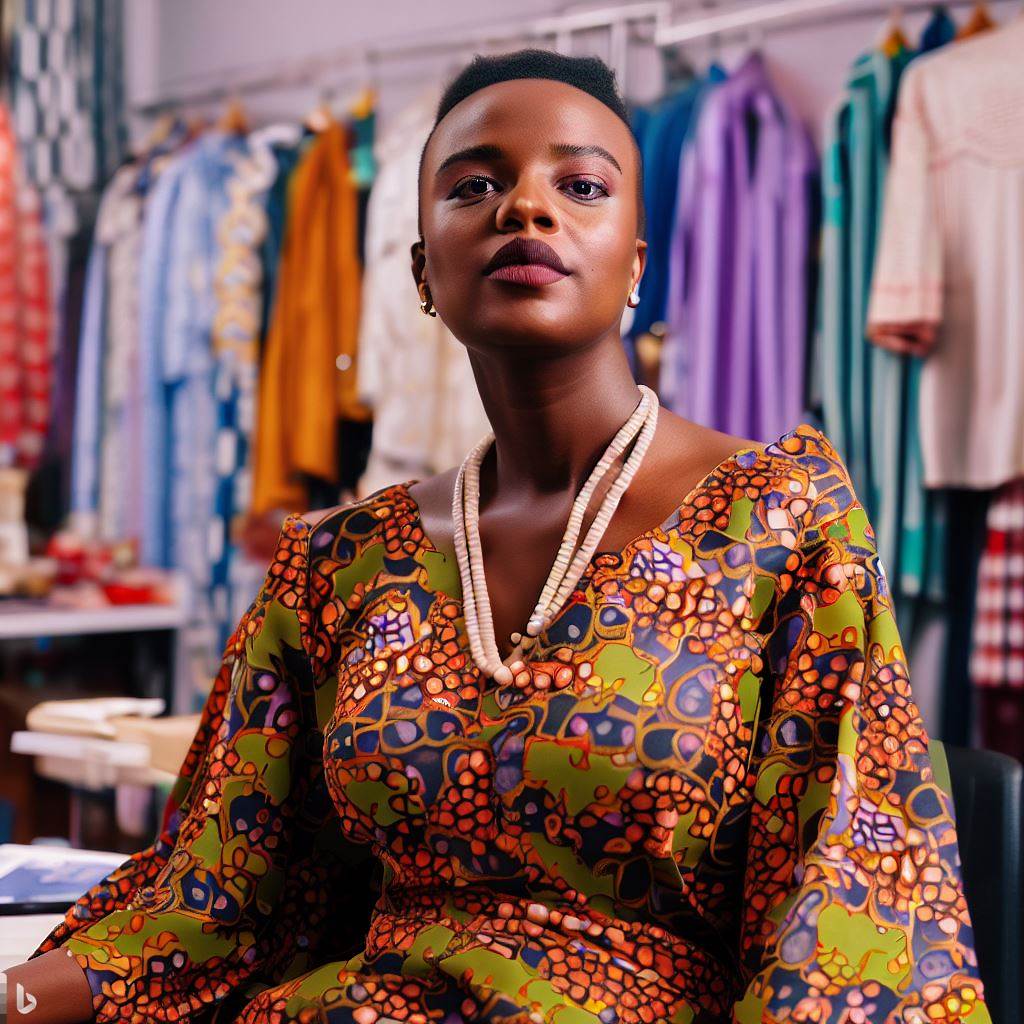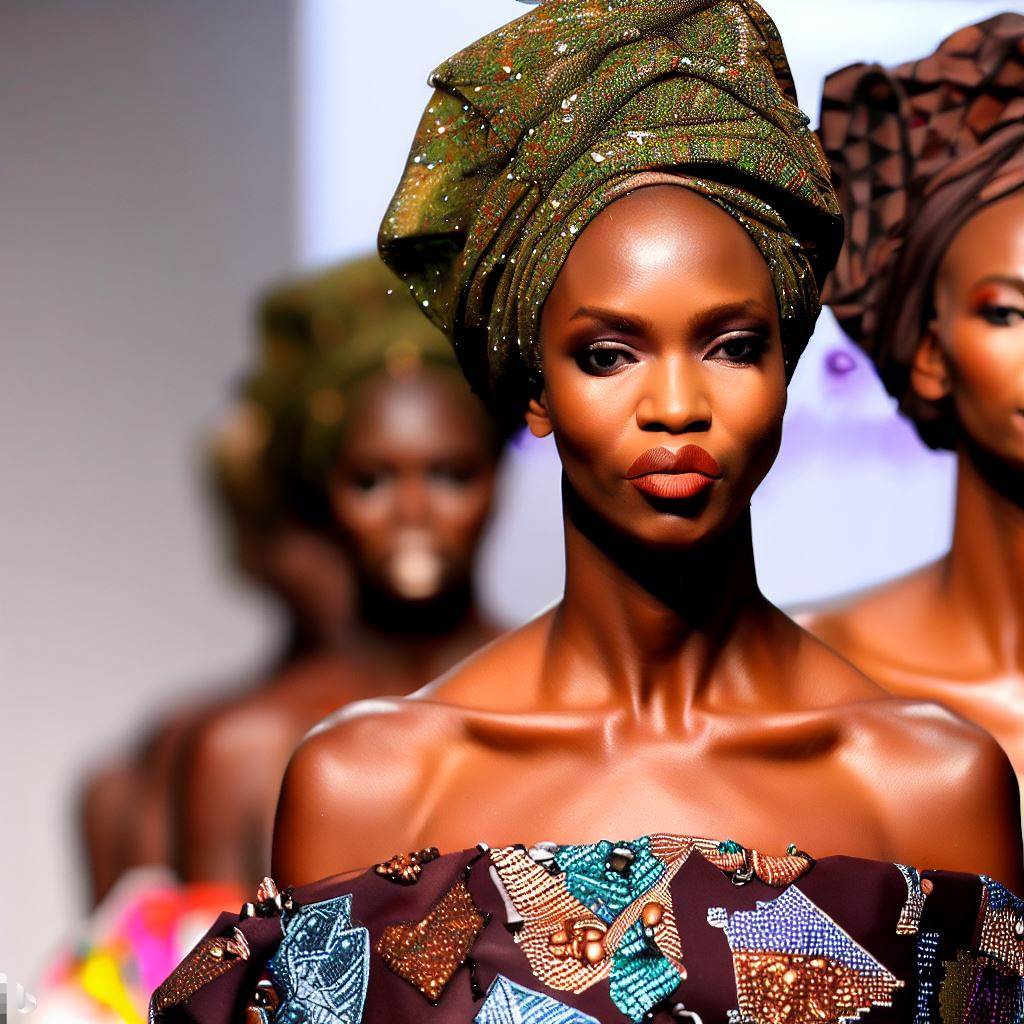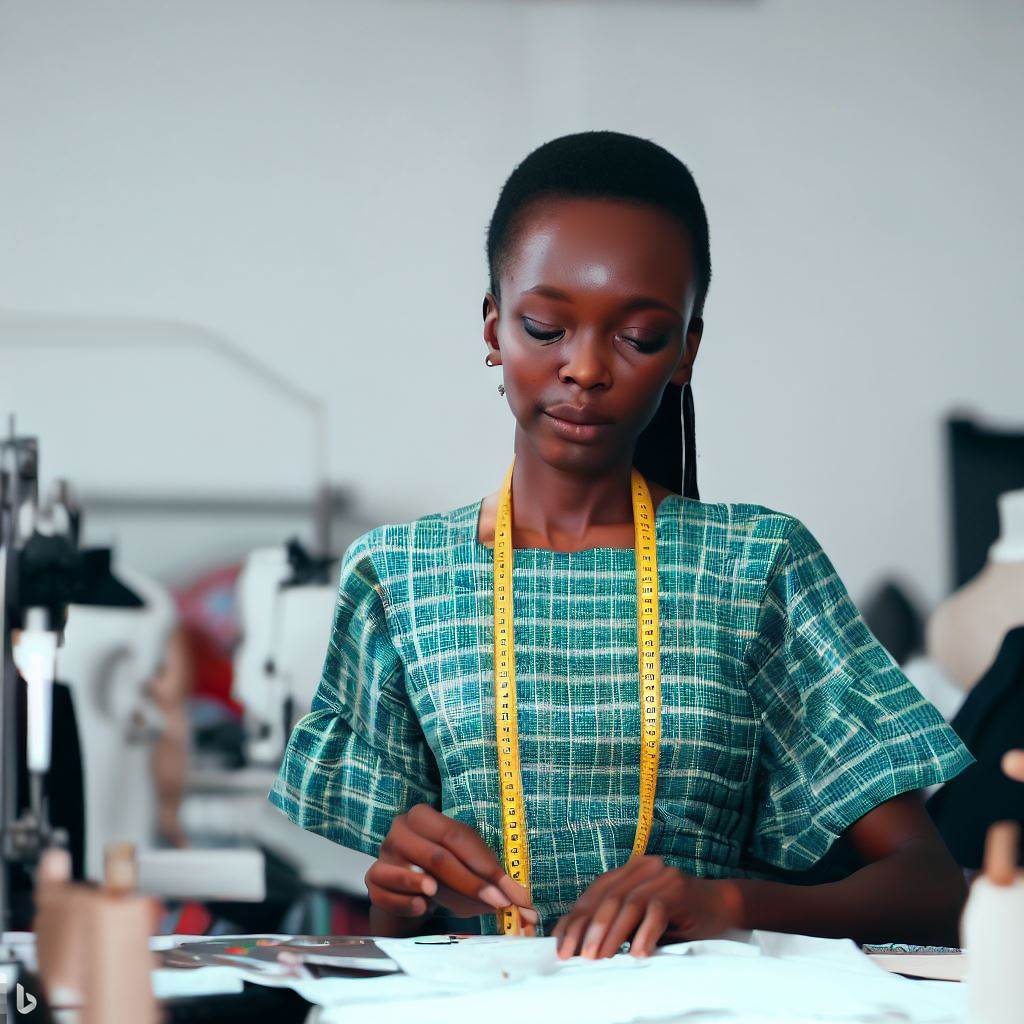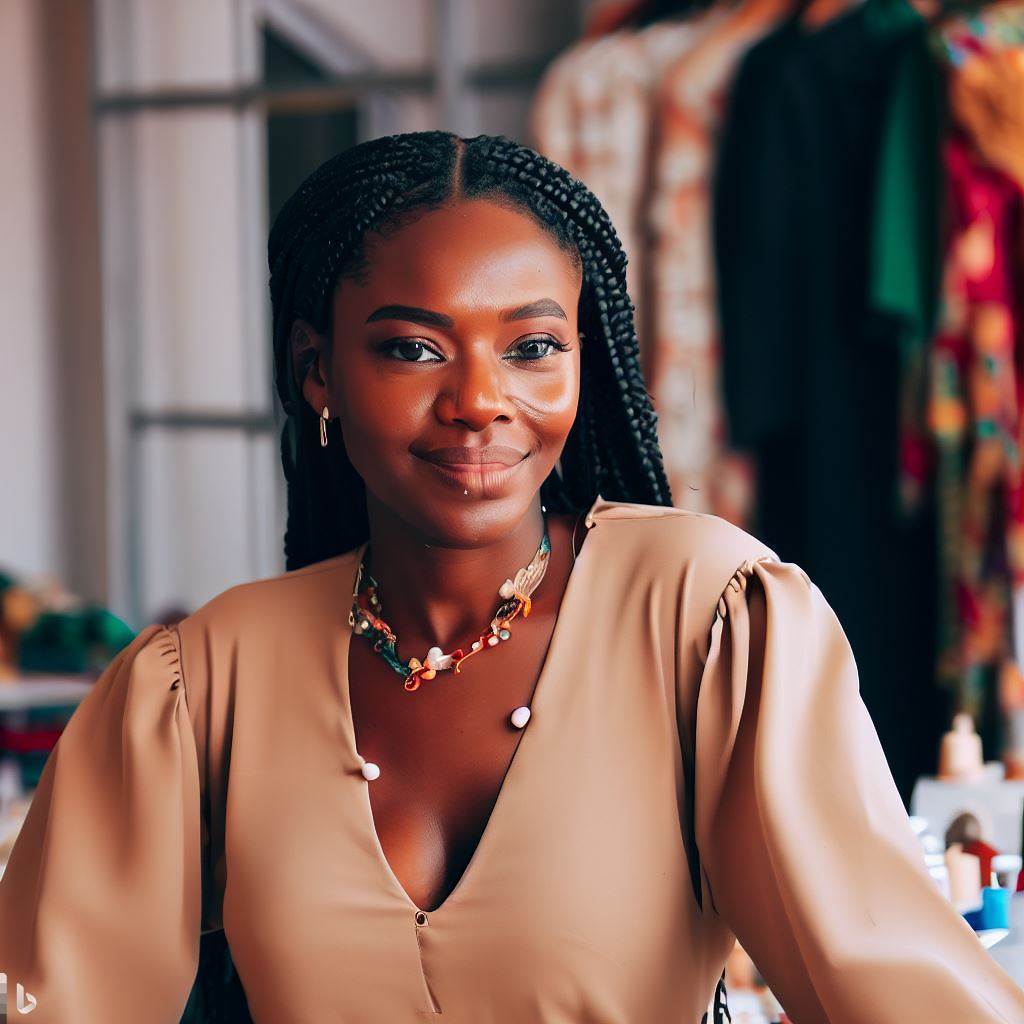Introduction
Production design plays a crucial role in the Nigerian film industry, creating visual concepts that enhance storytelling.
Nigerian production designers are gaining recognition worldwide for their talent and contribution to the industry.
With their unique creativity and attention to detail, they are making waves globally.
Production Design in Nigerian Cinema
- Creative Canvas: Production design in Nigeria’s film industry involves crafting captivating visual backdrops for storytelling.
- Sets and Scenery: Production designers transform locations into authentic settings that enhance the film’s narrative.
- Cultural Significance: Nigerian production designers infuse their work with rich cultural elements, adding depth to storytelling.
- Visual Storytelling: Their creativity amplifies the storytelling, immersing viewers in the world of Nigerian cinema.
- Career Growth: Nigerian production designers’ expertise and innovation are driving their recognition and success on a global scale.
Global Impact and Recognition
- International Stage: Nigerian production designers are gaining prominence worldwide, contributing to global film projects.
- Awards and Accolades: They’ve garnered international recognition, receiving awards and nominations for their exceptional work.
- Cultural Fusion: Their ability to fuse Nigerian aesthetics with global trends is reshaping visual storytelling.
- Representation: Nigerian production designers are ensuring accurate representation of Nigeria’s culture and diversity on screen.
- Inspirational Figures: Their success serves as an inspiration for aspiring production designers, both in Nigeria and beyond.
In the following chapters, we’ll introduce you to the top 10 Nigerian production designers who are making waves nationally and internationally, enriching the global film landscape with their artistic vision.
Stay tuned to meet these creative trailblazers.
Production Design and its Significance
Production design shapes film environments, playing a vital role in storytelling through visual elements.
Collaborating closely with directors, designers orchestrate a film’s appearance.
They ensure a unified look by working with various departments like art, cinematography, and costumes.
Production design establishes film tone, mood, and atmosphere, reflecting the narrative and themes.
It transports viewers across time, space, and imagination, crafting believable, immersive settings.
For diverse genres, designers select palettes, props, and décor, visually enriching narratives.
Their work deeply influences cinematic experiences, enhancing storytelling and conveying themes.
Consider “The Great Gatsby” opulence or the enchanting “Harry Potter” world.
Production design even shapes characters through their surroundings, revealing personality traits and histories.
Balancing artistic vision and logistics, designers manage location scouting, construction, and budgets.
In essence, production design crafts cinema’s visual core, heightening storytelling and shaping characters, offering a cinematic spell.
Read: Skills Required for a Production Designer in Nigeria
Criteria for Selection
In order to compile a list of the top 10 production designers making waves in Nigeria, several important criteria were taken into consideration.
These factors were crucial in identifying the most creative, innovative, influential, and recognized professionals in the field.
Additionally, recent projects played a significant role in determining the final selection.
The following criteria were used:
- Creativity: Designers must create visually stunning and imaginative concepts.
- Innovation: Priority for those introducing new techniques and fresh perspectives.
- Influence: Impact on industry and ability to set standards.
- Recognition: Awards and accolades showcasing talent and industry standing.
- Recent Projects: Quality, relevance, and success of recent work demonstrate growth and consistency.
By evaluating these criteria carefully, the top 10 production designers were chosen due to their exceptional talent, dedication, and impact on the Nigerian film industry.
Let’s explore the individuals who made it to the list:
- John Okolie: Transforms spaces into breathtaking sets with innovative ideas.
- Sandra Adams: Blends Nigerian art and modern aesthetics for striking designs.
- Chike Obi: Sets new industry standards, inspiring with influential work.
- Ify Okeke: Creates immersive environments, transporting viewers to different worlds.
- Ade Afolayan: Transforms stories into visual masterpieces, adorned with awards.
- Christian Obi: An emerging talent known for fresh and innovative designs.
- Adaora Nwosu: Brings a unique blend of traditional and contemporary designs.
- Nnamdi Ekeh: Consistently delivers captivating designs with industry recognition.
- Tina Adekunle: Acclaimed for detailed work seamlessly integrated with storylines.
- Emeka Okafor: Turns mundane locations into captivating sets, earning widespread recognition.
These top 10 production designers in Nigeria have demonstrated their unparalleled talent, creativity, and influence through their remarkable work.
They have continuously raised the bar for production design, leaving an indelible mark on the Nigerian film industry.
Read: Nigeria’s Production Design: Salaries and Benefits
Top 10 Production Designers Making Waves in Nigeria
Here is a list of the top 10 production designers in Nigeria, presented in no particular order:
Pat Nebo is acclaimed for exceptional set designs in works like “The Royal Palace” and “Beyond the Pug.”
Bola Belo contributes with stunning sets in “The Intruder” and “Shadows of the Past.”
Adegboyega Tomilayo’s unique vision shines in “The Enigma” and “Broken Vow.”
Dara Oke’s impeccable taste enhances “The Whispering Shadows” and “The Secret Door.”
Tunde Aina innovates with “Mirage” and “The Painted Veil.”
Yinka Olatunbosun’s exceptional work includes “The Shattered Dreams” and “The Forgotten Kingdom.”
Uche Nwagboso’s creativity thrives in “Captive Hearts” and “The Empty House.”
Segun Alabi’s meticulous work elevates “The Final Act” and “The Silent Symphony.”
Adeyeye Adetayo’s versatility shines in “The Dark Forest” and “The Enchanted Castle.”
Chioma Onwuka’s talent shines in “The Mystic Village” and “The Cursed Manuscript.”
These top 10 production designers are transforming the Nigerian film industry with their exceptional talent and creativity.
Each designer brings a unique perspective and contributes to the visual storytelling of the films they work on.
Their contributions have enhanced the overall cinematic experience for audiences in Nigeria and beyond.
Read: Top Production Design Schools in Nigeria Explored
Highlights of their Works
- Pat Nebo: Revolutionized Nigerian production design with impeccable attention to detail, as seen in “October 1.”
- Bola Faloye: Versatile designer crafted sets for various genres, from historical dramas to contemporary films.
- Ita Hozaife: Transformed spaces into breathtaking sets; “Half of a Yellow Sun” highlighted his attention to detail.
- Patience Umeh: Creative vision shines in “The Figurine,” capturing mysticism through visually striking set designs.
- Yinka Edwards: “The Wedding Party” showcased grand wedding-themed designs, setting a new standard.
- Bisi Adetayo: “The CEO” featured aesthetically impressive office spaces that reflected the corporate atmosphere.
- Tunji Afolayan: “October 1” showcased meticulous era recreation from costumes to set pieces.
- Olajide Mustapha: “76” transported viewers to the 1976 military regime with authentic sets.
- Victor Okhai: “Living in Bondage: Breaking Free” added chilling atmosphere through exceptional set designs.
- Patience Ejiofor: “The Royal Hibiscus Hotel” sets reflect story mood and theme, showcasing her talent.
Read: Becoming a Production Designer in Nigeria: A Guide
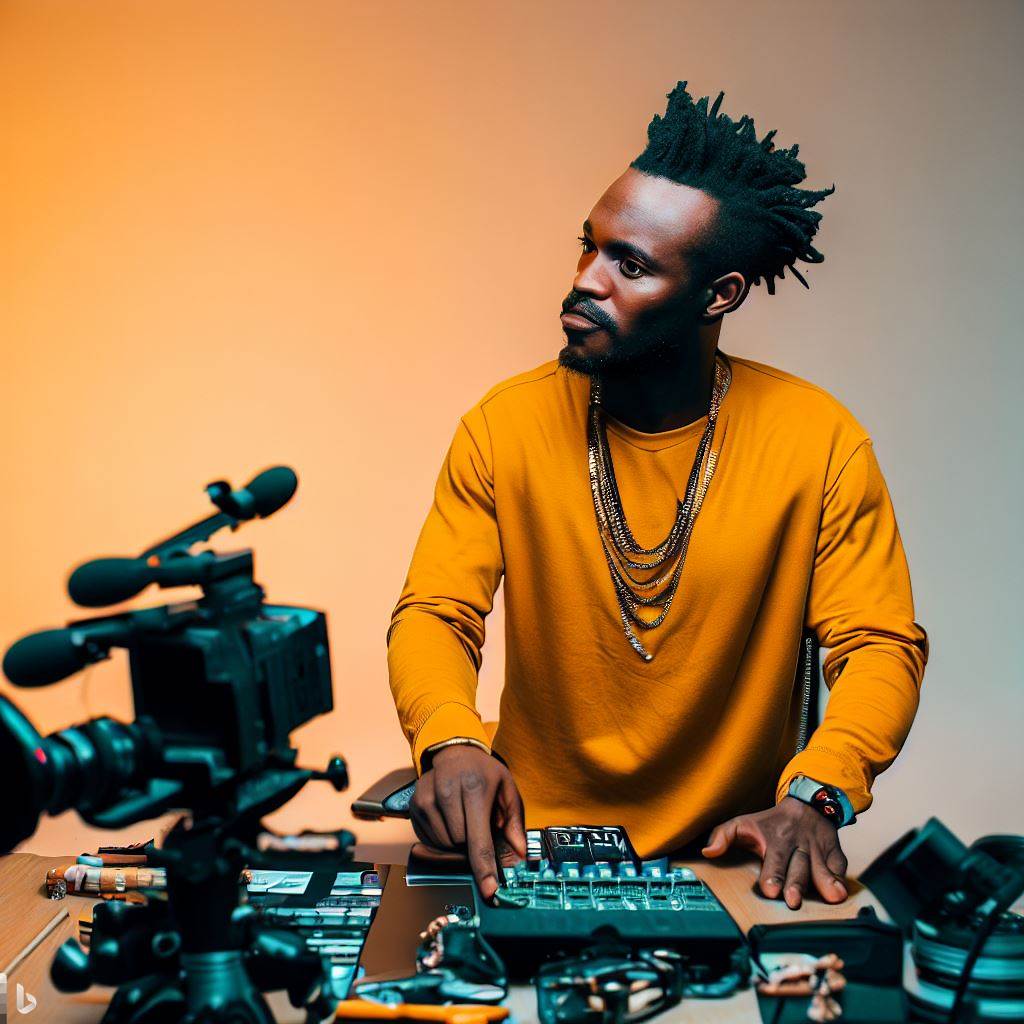
Impact on Nigerian Cinema
Production designers play a crucial role in shaping the visual aesthetic and overall look of films.
In Nigeria, these talented individuals have been making waves and leaving a lasting impact on the Nigerian film industry.
Let’s delve into the influence of these production designers and explore how their work has elevated the visual quality and professionalism of Nigerian films.
1. Pat Nebo
With an impressive portfolio that includes blockbuster films like “The Wedding Party” and “King of Boys,” Pat Nebo has revolutionized Nigerian cinema.
Her attention to detail and ability to create stunning sets have added a level of authenticity and beauty to the films she works on.
2. Bola Belo
Bola Belo’s work on “Fifty” and “The Milkmaid” showcases her talent for creating visually striking and immersive worlds.
Through her keen eye for design, she has helped Nigerian films achieve a level of sophistication and artistry previously unseen.
3. Chima Emeka
Chima Emeka’s expertise is evident in films like “October 1” and “76” where he seamlessly blends historical accuracy with captivating set designs.
His attention to detail and ability to transport audiences to different time periods have elevated the caliber of Nigerian films.
4. Patience Edwards
Patience Edwards is known for her work on films such as “The CEO” and “Banana Island Ghost.”
Her ability to create visually stunning and colorful sets has added a vibrant element to Nigerian cinema, enriching the overall viewing experience.
5. Niyi Akinmolayan
While primarily known as a director, Niyi Akinmolayan’s background in architecture has influenced his approach to production design.
In films like “The Arbitration” and “Chief Daddy,” his meticulous attention to detail has elevated the visual quality and contributed to the overall success of the films.
6. Pat Nebo
Pat Nebo’s work on “The Wedding Party” and “King of Boys” showcases her impeccable knack for creating visually stunning and authentic sets. Her contribution to Nigerian cinema cannot be overstated.
7. Tunde Laoye
Tunde Laoye’s work on “Mokalik” and “Oloture” has been praised for its ability to create realistic and immersive worlds.
Through his exceptional talent, Nigerian films have witnessed a rise in production design standards.
8. Ken Henshaw
Known for his work on films like “The Lost Okoroshi” and “The Mirror Boy,” Ken Henshaw’s unique style and creative vision have added a distinctive touch to Nigerian cinema.
His designs showcase the cultural richness and diversity of the Nigerian landscape.
9. Bisi Adetayo
Bisi Adetayo’s work on “Isoken” and “The Set Up” demonstrates her ability to create visually captivating and memorable sets.
Her contributions have played a pivotal role in enhancing the overall visual quality of Nigerian films.
10. Christian Onu
Christian Onu’s work on “Up North” and “Citation” has been widely praised for its attention to detail and ability to transport audiences to unique and authentic Nigerian settings.
His dedication to his craft has raised the bar for production design in Nigerian cinema.
Overall, the impact of these production designers on Nigerian cinema cannot be overlooked.
Their work has not only elevated the visual quality and professionalism of Nigerian films but has also showcased the immense talent and creativity present within the industry.
As Nigerian cinema continues to evolve, these production designers will undoubtedly play a crucial role in shaping its future.
Uncover the Details: Fashion Design Competitions in Nigeria: A Must-Participate
Challenges faced by Production Designers in Nigeria
Production Designers in the Nigerian film industry face numerous difficulties and limitations that hinder their creative process and impact the overall quality of productions.
These challenges are mainly attributed to the lack of resources, limited budgets, and other related factors.
Let’s shed light on some of the key challenges faced by production designers in Nigeria:
- Limited Budgets: Tight budgets restrict creating stunning sets, impacting Nigerian films’ visual appeal.
- Lack of Proper Infrastructure: Absence of studios, workshops, and equipment hampers production designers.
- Scarcity of Skilled Technicians and Artists: Shortage of specialized talent affects set construction, art, props, and costumes.
- Limited Access to Props and Set Dressings: Sourcing appropriate props challenges authenticity and visual impact.
- Time Constraints: Tight schedules lead to rushed designs and compromises in quality.
- Inadequate Research and Pre-production: Limited resources hinder thorough research and authentic designs.
- Lack of Recognition and Support: Designers lack acknowledgment and career opportunities.
- Unfavorable Working Conditions: Harsh environments during shoots affect production quality.
- Limited Creativity and Innovation: Budget constraints stifle design experimentation and growth.
- Lack of Government Support: Insufficient funding and policies hinder production design development in Nigeria.
Despite these challenges, production designers in Nigeria continue to demonstrate their resilience and passion for their craft.
With increased recognition, support, and investment, these professionals can overcome these limitations and contribute even more significantly to the development of the Nigerian film industry.
It is crucial to address these challenges to harness the full potential of production design and elevate the overall quality of Nigerian films.
Looking to the Future
Nigeria’s design industry grows with thriving film and TV. Designers excel in emerging talents and projects, shaping industry.
Nigeria’s Nollywood is the world’s second-largest film industry, making 2,000 films annually. Demand for skilled production designers grows.
Nigerian filmmakers collaborate internationally for fresh perspectives, elevating production design.
Talented youth shape Nigeria’s production design with innovation and creativity, revolutionizing set design.
Global recognition of Nigerian films brings accolades to production designers, inspiring new talent to join.
Nigerian educational institutions introduce production design courses, nurturing skills and knowledge for aspiring designers.
Now, let’s take a look at some emerging talents in Nigeria’s production design scene:
- Tunde Babalola’s attention to detail transports audiences through eras, earning him recognition in Nigerian cinema.
- Pat Nebo’s versatility shines in rustic villages and futuristic cityscapes, showcasing her creativity.
- Laolu Senbanjo, renowned for art, adds distinct traditional-contemporary fusion to production design.
- Anthony Adejuwon’s meticulous sets capture story essence, propelling him as a rising production design star.
- Upcoming projects reveal Nigerian production design’s future—blockbusters and indies promise stunning aesthetics and innovative set design.
- “Abba Makama’s ‘The Lost Medallion’ blends fantasy and Nigerian mythology, promising extravagant set designs.
- Desmond Ovbiagele’s ‘The Milkmaid’ explores insurgency’s impact, creating powerful settings for designers.
- Chinney Love Eze’s ‘The Wait’ offers contemporary romance’s chance for modern set designs.
Nigeria’s film industry flourishes, escalating demand for skilled production designers.
Emerging talents, collaborations, education, and upcoming projects amplify Nigeria’s production design possibilities.
Creativity and innovation will shape Nigeria’s design industry in the coming years.”
Conclusion
Production design plays a crucial role in Nigerian cinema, enhancing storytelling and creating immersive worlds.
The top 10 production designers identified in this blog post have made a significant impact in the industry.
Publish Your Professional Profile, Business or Brand
Showcase your expertise, gain trust, and boost visibility instantly on Professions.ng.
Publish NowThey have brought creativity, attention to detail, and artistic vision to their projects, elevating the overall quality of Nigerian films.
Their works have contributed to the growth and recognition of production design in Nigeria.
I encourage readers to explore the works of these designers, supporting their talent and the development of production design in the country.
By appreciating and valuing their contributions, we can foster a thriving community of production designers in Nigeria and continue to raise the bar in the Nigerian cinema landscape.

